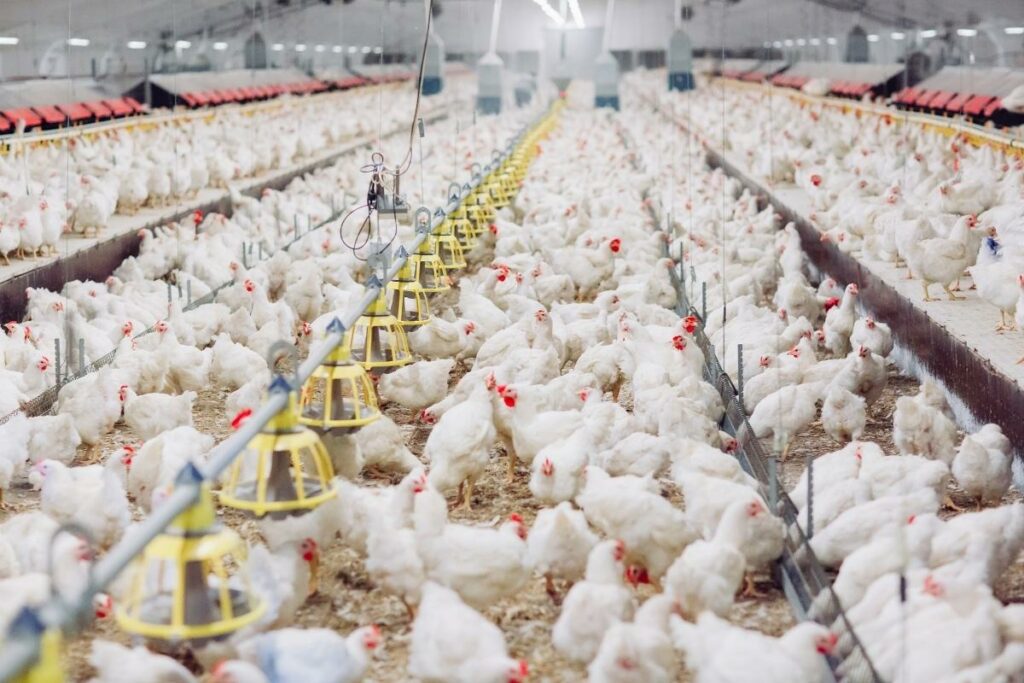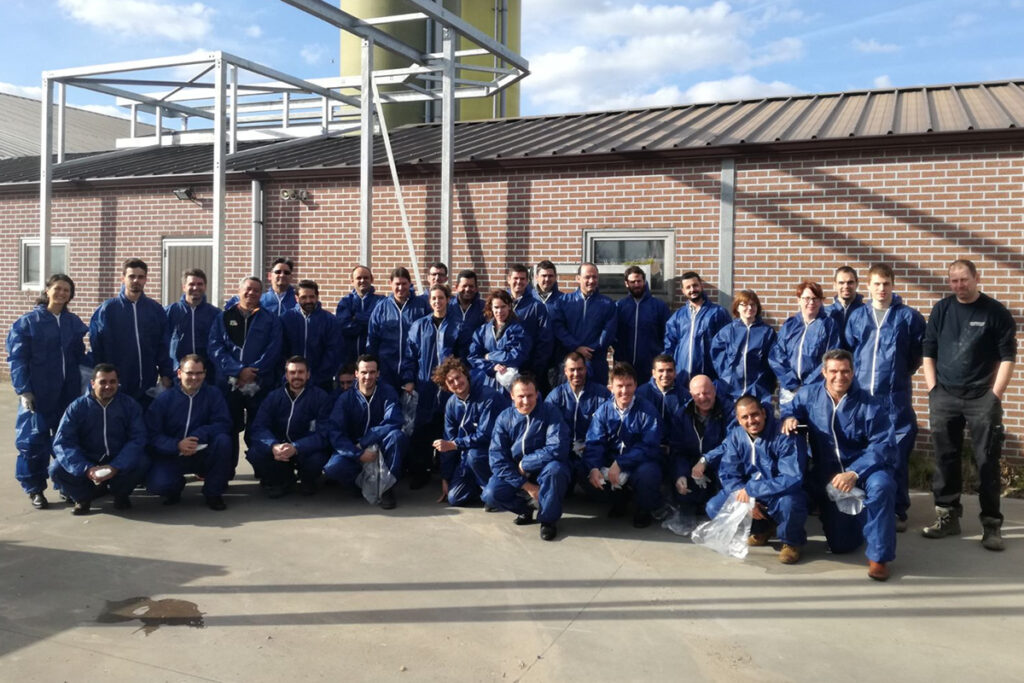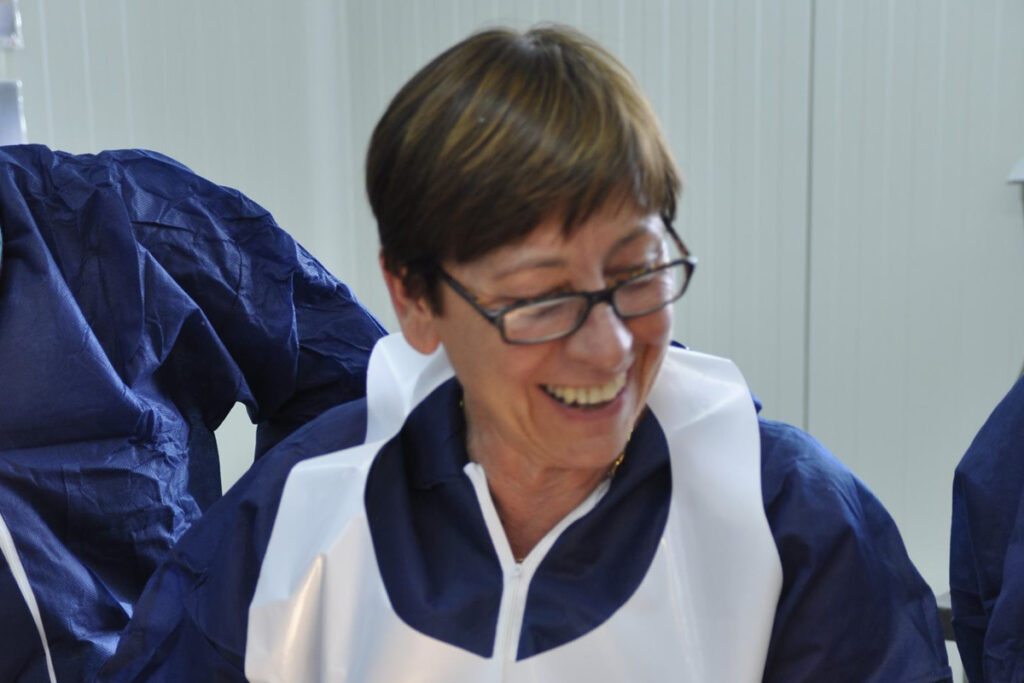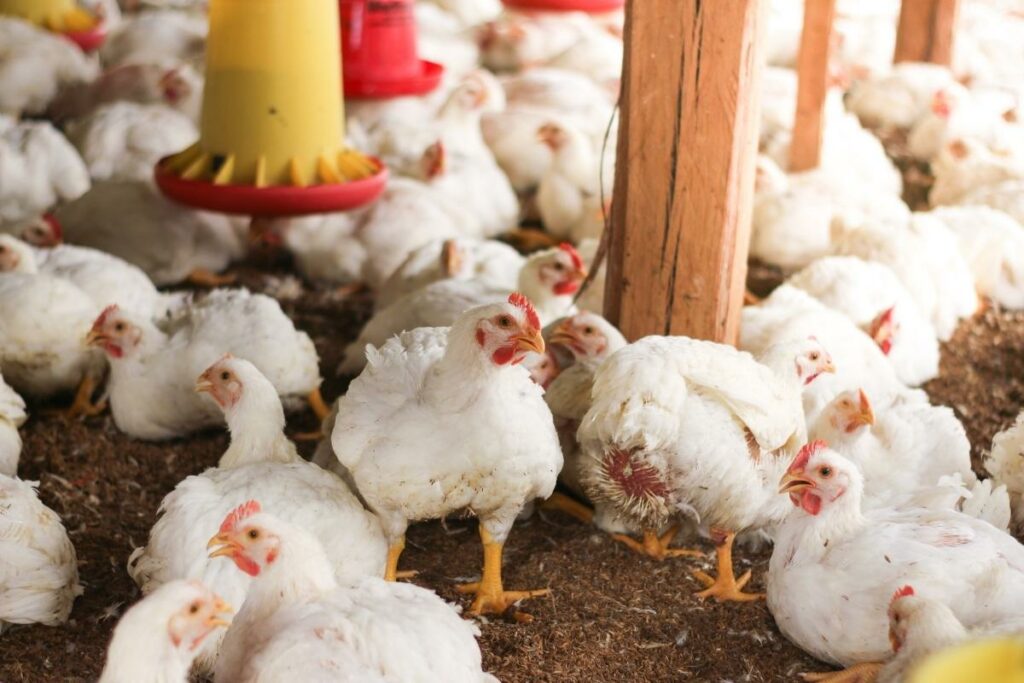Training on the responsible use of antimicrobials in poultry
Antibiotic Reduction in Poultry – Advanced Training Course
This Vetworks training course focuses on reducing antibiotic use in poultry production to comply with antibiotic resistance reduction programmes.
Many poultry producers are reducing antibiotic use to comply with antibiotic resistance reduction programmes. However, we believe that reduced antibiotic use will be a spillover effect if we focus on the most economic farm. This means that reducing antibiotic use can not only be a burden, but also a positive factor for your business. In our training you will learn how to target the most economical farm and turn it into a positive force for your operations. We believe this is the best way to reduce antibiotic use and maintain the health of your herd.
- Reduce antibiotic use in poultry production to comply with antibiotic resistance reduction programmes.
- Target the most economical operation and turn it into a positive force for your business.
- Learn how to target the most economic farm and turn it into a positive force for your operations.
You can register for our live training or our online streaming training (streamed worldwide).

Why Vetworks is the leading provider of training on the responsible use of antimicrobials in poultry operations
As everyone in the poultry industry knows, antimicrobial resistance is a major problem. Overuse of antimicrobials in poultry can lead to the development of resistant strains of bacteria.
This is why it is so important that poultry professionals receive training on the responsible use of antimicrobials.
Vetworks is the leading provider of this type of training.
We offer courses that cover everything from basic knowledge about antimicrobial resistance to strategies for preventing its spread. Our courses are aimed at both new and experienced poultry professionals and are led by experts in the field. We also offer online resources that can be accessed at any time.
As the world’s leading provider of training in the responsible use of antimicrobials in poultry farming, Vetworks is committed to reducing the spread of this serious problem.
What to expect from our training on reducing antibiotics in poultry production
Antimicrobials are an important tool for responsible poultry farmers. They help keep birds healthy and prevent the spread of disease.
However, antimicrobials can also lead to the development of resistance in bacteria.
For this reason, it is important to use them responsibly.
Our training on the responsible use of antimicrobials in poultry covers a variety of topics, including the different types of antimicrobials, how to choose the right one for your flock and how to use it correctly. We will also talk about the importance of monitoring your flock for signs of resistance and how you can mitigate the risk of resistance developing.
By the end of the training, you will have a comprehensive understanding of how to use antimicrobials responsibly to protect your herd and the environment.
- Protect your flock from developing antimicrobial resistance
- Learn how to properly administer antimicrobials to your herd
- Understand the importance of monitoring for signs of resistance
- Receive a certificate on successful completion of the course
What does antibiotic reduction in poultry mean and why is it important ?
Poultry farmers have long used antibiotics to keep their chickens healthy and prevent the spread of disease. However, the overuse of antibiotics has led to the development of antibiotic-resistant bacteria that can cause serious diseases.
Antibiotic reduction is a new farming practice that aims to reduce the use of antibiotics on poultry farms. This is done by providing clean housing and water for the chickens, as well as vaccination against diseases.
These and other progressive measures help to reduce the need for antibiotics and prevent the spread of antibiotic-resistant bacteria. Reducing antibiotics is not only important for the health of poultry farmers and their customers, but also for the fight against antibiotic resistance.
In our training we will discuss the different measures that can be taken to reduce the use of antibiotics. We will also give you tips on how to implement these measures in your poultry business.
Topics of the training on the responsible use of antimicrobials in poultry
Introduction: Causes of antimicrobial use on poultry farms
Poultry professionals, veterinarians, breeders, farmers, nutritionists and technical advisors all play a role in ensuring the responsible use of antimicrobials on poultry farms.
Topics covered in our antibiotic reduction training include an introduction to the concept of antimicrobial resistance, identifying the key drivers of antimicrobial use on poultry farms, and developing and implementing an antimicrobial use reduction plan.
In addition, participants need to understand the regulatory framework for antimicrobial use in poultry production and the potential economic impact of reducing antimicrobial use.
By addressing all of these topics, the antimicrobial use reduction training can help you, as a poultry farmer, to be better equipped to make responsible decisions about the use of antimicrobials on your poultry farm.
Controlling antimicrobial resistance: from sample to choice of treatment
Responsible use of antimicrobials is critical to maintain their effectiveness in treating human and animal infections.
Our antibiotic reduction training covers a range of topics related to controlling and reducing antibiotic resistance (AMR).
You will learn how to take samples for testing, how to select the most effective treatments based on the test results and what husbandry practices can help reduce the need for antimicrobials.
Holistic approach to gut health
In our training on antibiotic reduction and responsible use of antimicrobials in poultry, we also explore a range of topics related to gut health and holistic approaches.
Some of the topics we cover include the importance of a healthy gut microbiome, the benefits of probiotics and prebiotics, and optimising feed ingredients to promote gut health.
We also discuss the role of antimicrobials in poultry production and how responsible use can help reduce the development of antibiotic resistance.
Coccidiosis: importance in poultry production
Coccidiosis is an infection caused by protozoan parasites that can lead to severe disease and even death in poultry. The disease is particularly common in young birds, which are often more severely affected than older birds.
Coccidiosis can have a significant impact on poultry production, leading to reduced weight gain, lower egg production and increased mortality.
To control the disease, producers must adopt strict biosecurity measures and treat affected birds with the appropriate antibiotics.
However, the overuse of antibiotics has led to the development of antimicrobial resistance, making coccidiosis more difficult to control. Therefore, producers must use antibiotics responsibly to protect public health.
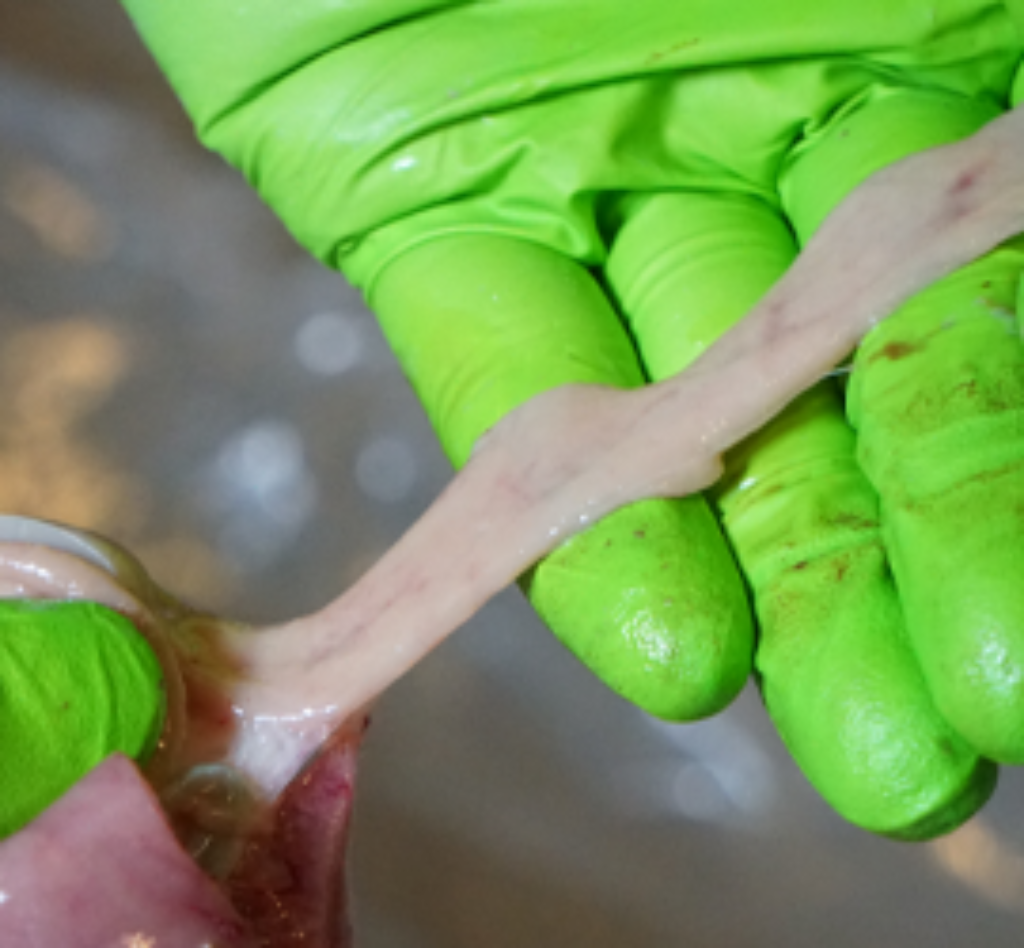
Coccidiosis prevention in conventional and AB-free systems
Coccidiosis is one of the most economically important poultry diseases worldwide. It is caused by a protozoan parasite that infects the intestine and causes diarrhoea and weight loss.
Chickens can become infected with coccidiosis through contact with contaminated soil or water.
Coccidiosis can be difficult to control because the parasite can survive in the environment for a long time. In conventional poultry production systems, coccidiosis is usually controlled by the use of prophylactic antibiotics.
However, there is an increasing trend towards antibiotic-free (AB) production systems.
It is important to note that responsible use of antibiotics is crucial in both conventional and AB production systems, as overuse of antibiotics can lead to the development of resistant strains of bacteria. In this course we will explore all options.
Enteric pathogens leading to higher AMU
One of the most important topics covered in our antibiotic reduction training is the problem of enteric pathogens.
These pathogens are one of the main causes of increased antimicrobial use (AMU) in poultry. Enteric pathogens are bacteria that live in the gut and cause disease.
They can be spread through contaminated food or water, contact with infected animals or contact with contaminated surfaces. The most common intestinal pathogens include Salmonella, E. coli and Campylobacter.
Antibiotics are often used to treat these infections, but resistance is a growing problem. When antibiotics are used unnecessarily, it creates an environment where resistant bacteria can thrive.
It is therefore important to use antibiotics responsibly to prevent the spread of resistance.
Our antibiotic reduction training addresses this issue in depth and offers practical tips for veterinarians and poultry farmers.
Gut health management: growth promoters and alternative solutions
Gut health is especially important when it comes to chickens. A healthy gut helps the chicken absorb nutrients and fight off infections.
There are several ways to promote gut health in chickens, including the use of growth promoters and alternative solutions. Growth promoters are substances that help chickens grow faster and stay healthy.
Alternative solutions are substances that can be used instead of antibiotics, such as probiotics. The right combination of these methods is crucial for keeping the chickens healthy and avoiding diseases.
Reducing antibiotics and using antimicrobials responsibly in poultry are topics that all chicken farmers should be familiar with.
By understanding the importance of gut health and using growth promoters and alternative solutions, farmers can ensure that their chickens are healthy and disease free.
The complex interplay of respiratory diseases
Respiratory disease in poultry is a complex interaction of many factors that make it difficult to manage.
The most important factor is the poultry’s environment, which can be greatly influenced by housing, husbandry practices and diet. This in turn can lead to other problems, such as poor ventilation, which can cause an increase in respiratory disease.
In addition, infectious agents such as bacteria and viruses can also play a role in the development of respiratory diseases. While some respiratory diseases can be controlled through the use of antibiotics, it is important to use these drugs responsibly to prevent the development of antibiotic resistance.
By understanding the complex interplay of factors that lead to respiratory disease, we can better control these diseases and reduce their impact on poultry health.
Reduce the use of AB for systemic infections
Systemic infections are those that have spread throughout the body and are usually more serious than mild infections.
Antibiotics can be an effective treatment for systemic infections, but they should only be used when necessary.
Overuse of antibiotics can lead to the development of antibiotic resistance, which can make it more difficult to treat serious infections in the future.
Therefore, it is important to use antibiotics only when they are really needed and not to use them unnecessarily.
Zoonotic diseases with multidrug resistance: Salmonella, Campylobacter
Zoonotic diseases are diseases that can be transmitted from animals to humans.
One of the most common zoonotic diseases is Salmonella. Campylobacter is another common zoonosis.
Both diseases can cause severe illness and are often resistant to antibiotics.
Our training on antibiotic reduction and responsible use of antimicrobials in poultry will help you learn more about these multi-resistance zoonotic diseases.
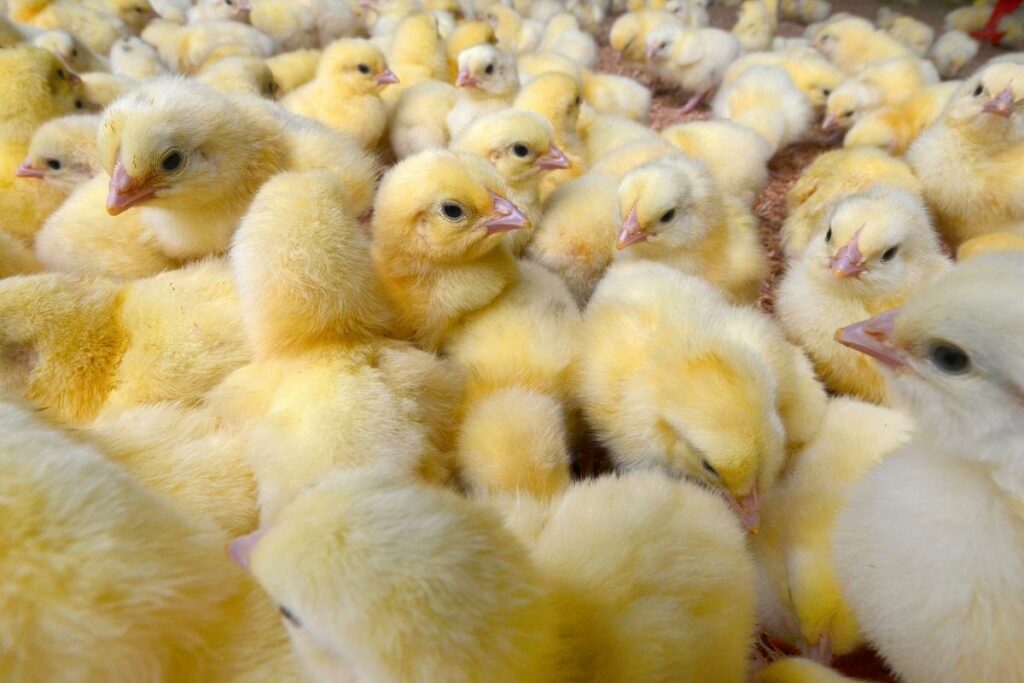
Control and prevention of Salmonella and Campylobacter
Training on antibiotic reduction and responsible use of antimicrobials in poultry is essential for the control and prevention of Salmonella and Campylobacter.
Poultry is a common source of foodborne illness and these two bacteria are among the most common causes of illness. Although cooking poultry thoroughly kills both Salmonella and Campylobacter, it is still important to take steps to prevent these bacteria from contaminating the meat in the first place.
Good farming practices, including proper biosecurity, are crucial to prevent Salmonella and Campylobacter from entering the flock. In addition, vaccinating chickens against these bacteria can help reduce the incidence of disease.
By taking these measures, we can protect public health and ensure that poultry remains a safe and tasty part of our diet.
The art of vaccination: key to success
Vaccination is critical to poultry health, helping to prevent disease and maintain bird populations.
However, the effectiveness of vaccination can be influenced by several factors, including the age of the bird, the type of vaccine used and the environment in which the bird is kept. It is therefore important to understand all aspects of vaccination to ensure that the birds are healthy and disease free.
In our training we will discuss the main principles of vaccination and show how to troubleshoot common problems.
We will also give you practical tips on how to choose the right vaccine for your flock and how to administer the vaccine correctly.

Immunosuppressive diseases and solutions to improve immune response
In poultry, some diseases can severely compromise the animal’s immune response.
These immunosuppressive diseases make the poultry more susceptible to other infections and diseases. As a result, the use of antimicrobials is often increased to prevent and treat these secondary infections.
However, the overuse of antimicrobials can lead to antibiotic resistance.
Therefore, it is important to find ways to improve the immune response in poultry to reduce the need for antimicrobials. Some solutions are vaccinations, probiotics and prebiotics.
Vaccinations can help prevent disease and stimulate the immune system. Probiotics and prebiotics provide beneficial bacteria that can help improve gut health and immunity.
With these solutions, we can help reduce the use of antimicrobials in poultry production while protecting the health of the animals.
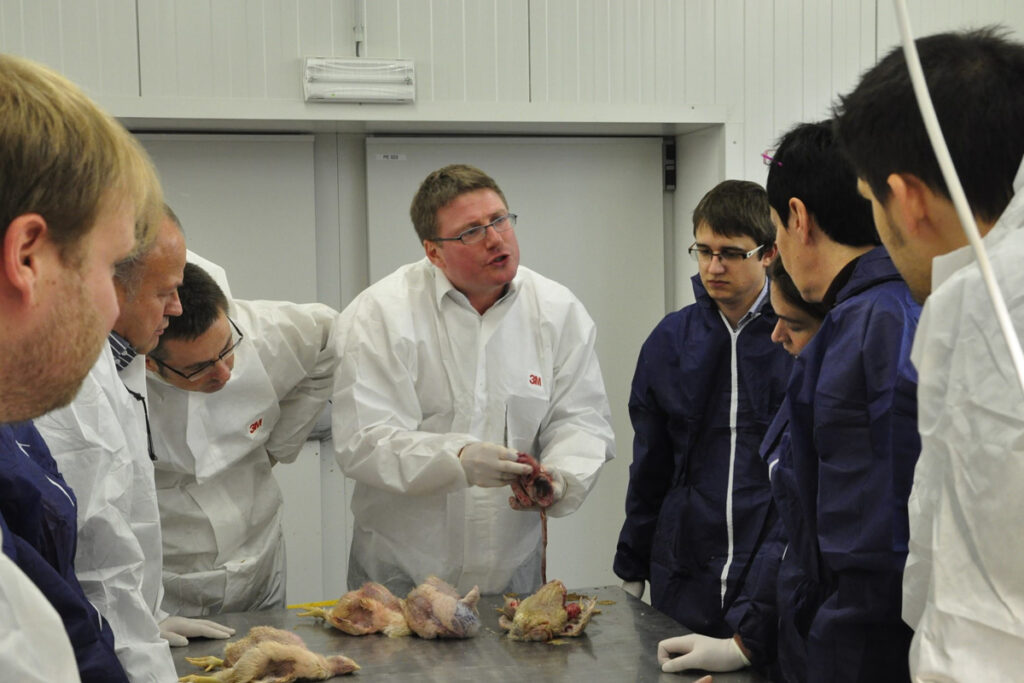
Rethinking farming practices: biosecurity
Good biosecurity practices are essential for any poultry operation, large or small. Keeping your birds healthy and disease free can reduce the need for antimicrobials. There are several measures you can take to improve biosecurity on your farm, such as:
- Restricting access to authorised personnel;
- Regular cleaning and disinfection of facilities and equipment;
- Vigilant monitoring for signs of disease;
- Implementing strict biosecurity protocols;
- and much more.
By taking these measures, you can protect your flock and reduce the risk of disease outbreaks. This, in turn, helps to reduce the need for antimicrobials and to use antibiotics only when they are really needed.
Combat AMR and reduce AMU: Practical solutions
Responsible use of antibiotics is critical to maintaining their effectiveness and combating antimicrobial resistance (AMR).
One way to reduce the need for antibiotics is to improve poultry management.
Good poultry husbandry includes the provision of clean water, adequate ventilation and appropriate nutrition.
These conditions help to reduce the spread of disease and the need for antimicrobial treatment.
Another way to reduce AMU is to vaccinate chickens against common diseases. This helps prevent disease outbreaks that can often require antimicrobial treatment.
Finally, it is important to use antimicrobials judiciously and only when needed. This means using the most effective drug at the lowest possible dose and for the shortest possible duration.
By following these practices, we can help maintain the effectiveness of antibiotics and combat AMR.
How to develop a tailor-made AB reduction programme and case study
There is a growing awareness in the poultry industry about the responsible use of antibiotics and antimicrobials.
One of the keys to reducing the unnecessary use of these agents is to develop a tailored AB reduction programme. With a comprehensive approach ranging from biosecurity to feed ingredients, producers can significantly improve the health of their herds.
In addition, case studies can be an invaluable tool to educate others on the importance of AB reduction.
By sharing real-world examples of successful programmes, we can help encourage more producers to adopt similar practices.

Why you should attend our training on responsible use of antimicrobials in poultry production
If you are a poultry producer, you know that reducing the use of antimicrobials is important to comply with antimicrobial resistance reduction programmes.
But did you also know that you can reduce the overall use of antibiotics by focusing on the most economical measures? In this training you will learn how to turn this issue from a burden into a positive factor for your business.
You will learn how to target the most economical operation to reduce overall antibiotic consumption and learn about the latest research on the responsible use of antimicrobials in poultry production.
This antibiotics reduction training is essential for any poultry producer, veterinarian, breeder, poultry farmer, nutritionist or technical advisor who wants to comply with antibiotic resistance reduction programmes.
So don’t wait and sign up for our unique training on antibiotic reduction in poultry.
- Learn how to reduce the overall use of antibiotics in poultry production
- Aim for the most economical operation to save costs
- Get up-to-date information on the responsible use of antibiotics
- Improve your business and stay compliant with antibiotic resistance reduction programmes
Other poultry trainings:
Parasitology training for poultry professionals
Respiratory Health in Poultry Training
- Training on the responsible use of antimicrobials in poultry
- Why Vetworks is the leading provider of training on the responsible use of antimicrobials in poultry operations
- What to expect from our training on reducing antibiotics in poultry production
- What does antibiotic reduction in poultry mean and why is it important ?
- Topics of the training on the responsible use of antimicrobials in poultry
- Why you should attend our training on responsible use of antimicrobials in poultry production

